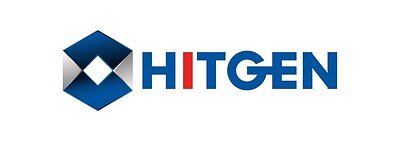
HitGen & Gates Foundation Expand Drug Discovery Partnership to Tackle Global Health Challenges
A renewed collaboration leverages HitGen’s innovative DNA-encoded library technology to accelerate the search for new treatments for tuberculosis, malaria, and non-hormonal contraception, addressing critical unmet needs worldwide.
HitGen & Gates Foundation Expand Drug Discovery Partnership to Tackle Global Health Challenges
NEW YORK, NY – November 20, 2025
The Gates Foundation has deepened its commitment to combating global health crises by expanding its partnership with HitGen Inc., a leading Chinese drug discovery company. Building on a previous successful collaboration, the renewed agreement will focus on identifying novel drug leads for tuberculosis and malaria, and, significantly, on discovering new agents for non-hormonal contraception. The expansion underscores the potential of HitGen’s cutting-edge DNA-encoded library (DEL) technology to address some of the world’s most pressing health challenges.
Accelerating Drug Discovery with DEL Technology
HitGen specializes in DEL technology, a powerful platform that allows for the rapid screening of billions of small molecules. This innovative approach dramatically accelerates the identification of promising drug candidates, offering a faster and more efficient pathway to developing new treatments. “The ability to rapidly synthesize and screen such a vast chemical space is a game-changer in drug discovery,” explains one industry analyst. “Traditional methods are often time-consuming and expensive. DEL technology provides a significant advantage.” HitGen boasts a library exceeding 1.2 trillion small molecules, making it one of the largest in the industry.
The company’s platform, coupled with recent advancements like its OpenDEL™ 5.0, which expands chemical space to target challenging biological targets, positions it as a key player in the evolving landscape of drug discovery. “This isn't just about scale,” notes a source familiar with the technology. “It's about the diversity and quality of those molecules. HitGen has focused on building a library that’s both large and structurally complex, which is crucial for finding effective drugs.”
Addressing Critical Global Health Needs
The expansion of the partnership comes at a critical time. Tuberculosis remains a leading cause of death worldwide, with over 10 million new cases reported annually. Current treatments are often lengthy, require multiple antibiotics, and face growing resistance. The Gates Foundation has made significant investments in TB research, aiming to develop new drugs and vaccines that can effectively combat the disease. “The need for more effective TB treatments is urgent,” states one public health expert. “Drug-resistant strains are a major threat, and we need new tools to stay ahead.”
Similarly, malaria continues to claim hundreds of thousands of lives each year, particularly in sub-Saharan Africa. While significant progress has been made in reducing malaria incidence, challenges remain, including the emergence of drug-resistant parasites and insecticide-resistant mosquitoes. The Gates Foundation has been a long-time supporter of malaria control and elimination efforts, investing in new technologies and strategies to combat the disease. “We’ve seen remarkable progress against malaria, but we can't afford to become complacent,” comments one researcher. “Continued investment in research and development is essential.”
Expanding Horizons: Non-Hormonal Contraception
The inclusion of non-hormonal contraception as a focus area marks a significant expansion of the partnership. Currently, many women prefer non-hormonal contraceptive options due to the side effects associated with hormonal methods. However, these options are often limited in effectiveness or availability. According to recent data, over 218 million women in low- and middle-income countries have an unmet need for contraception. The Gates Foundation has recognized this gap and is actively funding research to develop new and more effective non-hormonal contraceptives. “Providing women with more choices in contraception is crucial for reproductive health and empowerment,” notes one advocate. “Non-hormonal options are particularly important for women who cannot or prefer not to use hormonal methods.”
The investment in non-hormonal contraception aligns with a broader push to address women’s health needs, reflecting a growing recognition of the importance of reproductive health in achieving gender equality and sustainable development. The demand for new contraceptive methods has driven increased research into novel drug targets and delivery systems, presenting opportunities for innovative companies like HitGen.
The renewed collaboration represents a synergistic partnership, combining HitGen’s technological expertise with the Gates Foundation’s strategic vision and financial resources. The initial success of the previous collaboration demonstrates the potential of this partnership to deliver meaningful results, and the expanded focus on non-hormonal contraception signals a commitment to addressing a critical unmet need. “This partnership is a testament to the power of collaboration in tackling some of the world’s most pressing health challenges,” concludes one industry observer. “By combining innovative technology with strategic investment, we can accelerate the development of new treatments and improve the lives of millions of people.”
